Sport
South Africa's President Cyril Ramaphosa said he was pleased with the meeting after an awkward ambush by President Donald Trump similar to what the US president meted out on Ukrainian President Volodymyr Zelenskyy three months ago
Ahead of Wednesday’s meeting at the White House, South Africa's President Cyril Ramaphosa had hoped to use his famous negotiating skills to correct what he said were mischaracterisations of South Africa by the US — and to negotiate new trade deals.
Instead, he faced an awkward ambush by President Donald Trump similar to what the US president meted out on Ukrainian President Volodymyr Zelenskyy three months ago.
Trump played him a video that he claimed was an evidence of “white genocide” being committed against White people in South Africa. The US president also showed news articles that he said backed up his claims – although one actually featured a photo of violence in the Democratic Republic of Congo, not South Africa.
It was the kind of public thrashing that back home South Africans had worried President Ramaphosa was going to face from the ‘’mouth of Trump hell’’, as one South African newspaper had described it.
Here are five key takeaways from the Oval office meeting.
Ramaphosa’s calmness
The South African president is famous for his negotiating skills having made his name as the chief negotiator during the talks in the early 1990s that ended the brutal apartheid system of White minority rule in South Africa.
Diplomatic tensions ahead of meeting meant Ramaphosa had anticipated an uneasy encounter. Just last week, the US welcomed around 50 White South Africans granted refugee status by the Trump administration as victims of "white genocide." The claim has been widely dismissed as absurd, including by the South African government.
With television cameras rolling, Ramaphosa kept his cool and navigated the tense moments with skill. He did not fall for his host's provocations and stuck to his strategy of flattery, at some point jokingly pointing out that he does not have an aircraft to present as tribute to the American leader.
Ramaphosa’s plane gift joke
On the backdrop of a recent Qatar’s aircraft gift to the US president, Ramaphosa lightened the mood at the meeting saying, "I'm sorry I don't have a plane to give you."
"I wish you did. I'd take it," Trump fired back, sending the meeting room into laughter.
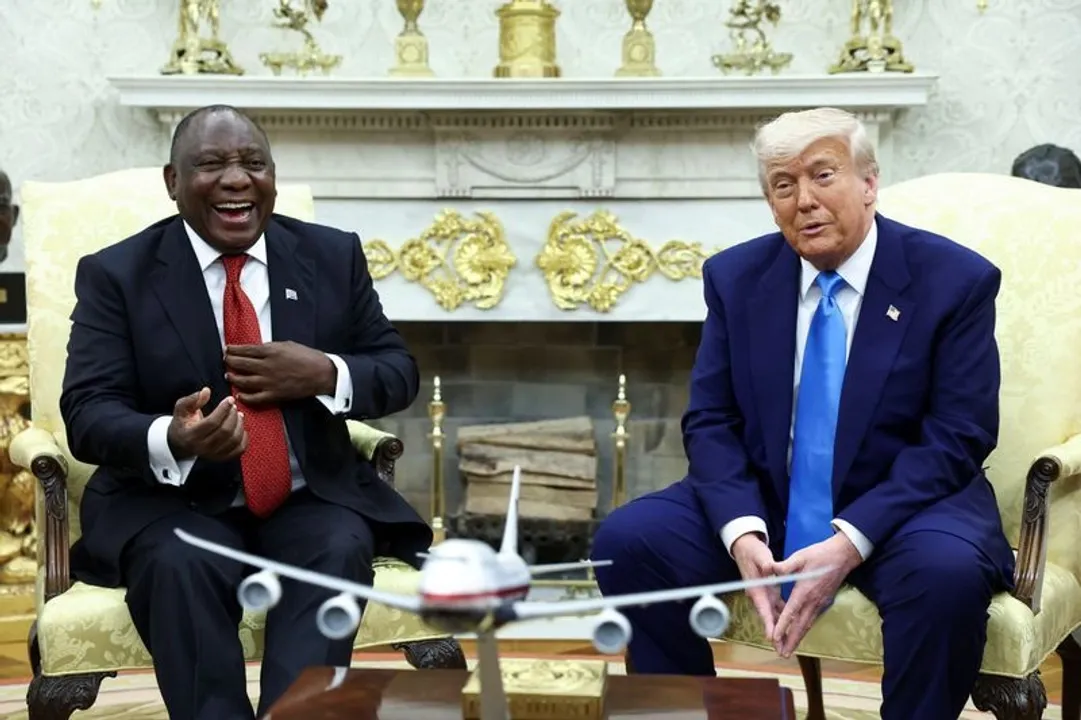
The wealthy Gulf country's offered Trump the $400 million luxury aircraft to serve as a new Air Force One.
Qatar Prime Minister Sheikh Mohammed bin Abdulrahman bin Jassim Al-Thani defended the gift as "an exchange between two countries".
No concrete economic deals announced
Ramaphosa set off for the US with hopes of reaching new agreements on trade and appeared clearly prepared for the encounter.
Trump has cut all US assistance to South Africa and in March expelled its ambassador for calling Trump’s policies a “White supremacist response to growing demographic diversity in the US.”
South Africa has also angered the Trump White House over its move to bring charges at the International Court of Justice accusing Israel of committing genocide against Palestinians in Gaza.
Speaking to reporters after leaving the White House, Ramaphosa said he was pleased with the meeting. He said the two countries had agreed to discuss critical minerals in South Africa, but did not provide details.
Ramaphosa said he still expected Trump to attend a G20 summit in Johannesburg in November.
A trade and investment proposal was also submitted, which includes buying liquefied natural gas from the United States, his trade minister said.
South Africa is one of the countries facing hefty trade import tariffs imposed by the US in the Trump administration’s radical trade policies. No deal was announced on tariff after the two presidents’ meeting.
The Elon Musk’s question
South African-born ally Elon Musk, who was also in the Oval Office, has been a key driver of the "white genocide" claims, which have been widely credited internationally.
He has previously claimed that Starlink, his satellite internet service provider, was barred from operating in South Africa because he is not Black, an allegation South African officials refuted.
Local Black Economic Empowerment rules, require foreign-owned telecommunications licences to sell 30% of the equity in their local subsidiaries to historically disadvantaged groups.
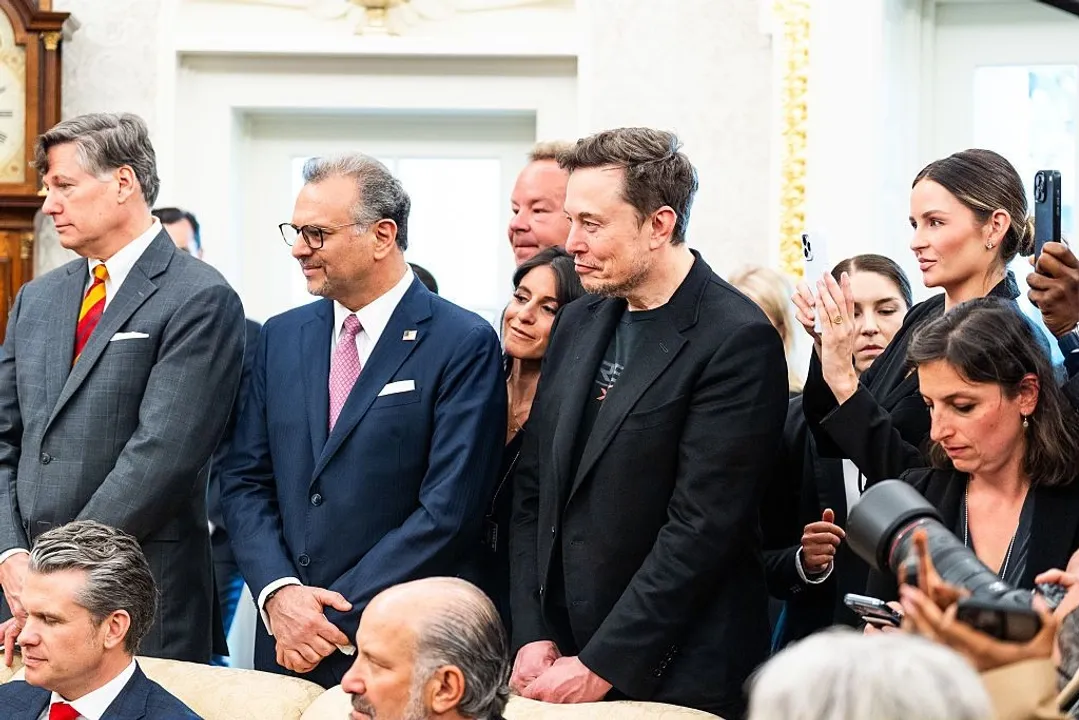
The South African delegation that met Trump included Johann Rupert, an Afrikaner and luxury goods tycoon who is South Africa’s richest person.
“We need Starlink at every local police station,” Rupert told Trump in an attempt to address Musk's concerns.
Ahead of the Ramaphosa’s trip, the South African government had hinted that it would make concessions for Musk’s businesses, including granting an operating licence to his automobile company, Tesla.
South Africa’s case at ICJ against Israel skipped
Ramaphosa “dodged a bullet” was how a South African news outlet charaterised the Oval office meeting. Local media are of the view that he came out unscathed from the dramatic confrontation.
The head of Democratic Alliance, a White-dominated party in Ramaphosa’s coalition government, who is also the agriculture minister, John Steenhuisen, was part of the delegation. He gave a crucial backing to the South African government.
A closed-door meeting after the Oval office clash did not touch on South Africa’s case at the International Court of Justice, where Pretoria is accusing Israel of committing genocide against Palestinians in Gaza.
Despite the confrontation during the meeting with Trump, South Africa’s Ramaphosa sought to downplay the situation that unfolded.
“You wanted to see drama and something big happening,” Ramaphosa said to reporters afterwards. “I’m sorry that we disappointed you somewhat."
Comments
No comments Yet








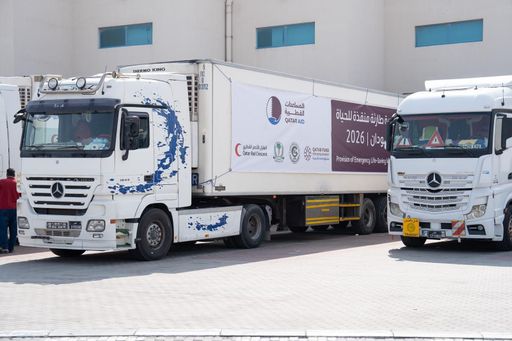
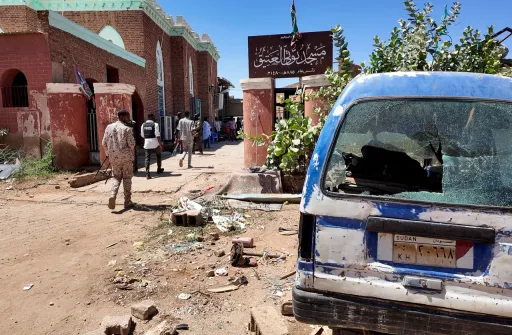
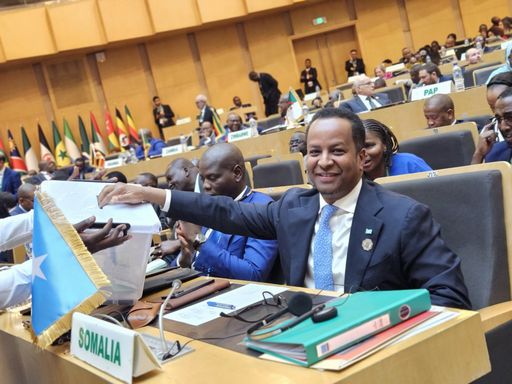
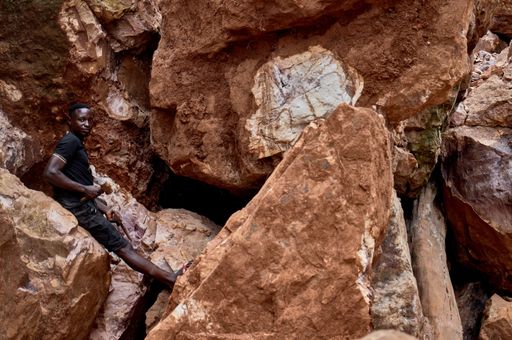








Comment